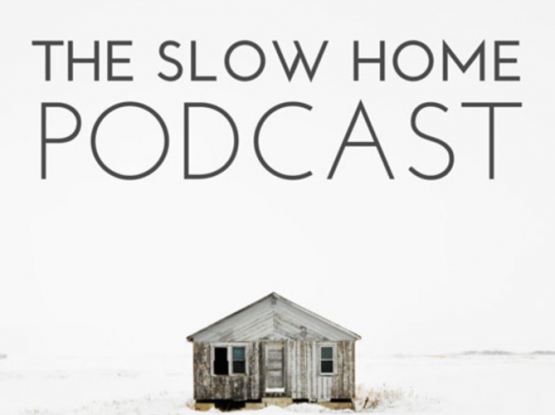Reduce Anxiety As You Regain Some Control Of Your Facebook Timeline.
Anxiety is on the rise. Anxiety is one of the most searched health words on the internet. Many people are struggling with anxiety and in this article I am going to discuss Facebook and anxiety and share a few tips that might be helpful.

Managing our usage of social media is a common struggle. If it gets on top of you, if you feel out of control, then technology is becoming a problematic stressor.
The goal is to feel empowered so you can enjoy your time on the screen.
My dear old friend Jo (not her real name) and I reconnected via Facebook last year. We met up briefly at a music festival a few years back, more recently I was delighted to receive a friend request on Facebook. Jo has avoided joining for years. She told me that her younger work colleagues were all connecting with each other via Facebook, and she felt left out. They encouraged her, and one day she took the plunge. They introduced her to the world of social media.
In the first few weeks she connected with friends scattered across the globe and was also able to follow her son’s adventures (a major motivator) and photos whilst he travelled across Europe. She found me too. We had some wonderful text conversations and shared pictures of our current lives using Facebook private messenger.
Then it became a drag, Jo said her Facebook news feed (Timeline), started to fill up with multiple baby pics from the girls at work, trivia videos and conversations that she wasn’t interested in. Jo enjoyed interesting articles, some photos and a few of the comments but in the end she started to feel an new kind of anxiety – that the girls at work were grandstanding, approval seeking, competing and into ego puffery. One day someone posted a picture of her (and tagged her) eating morning tea ungracefully, a terrible food in face picture. She started to feel inadequate and stressed. Her old anxious self was reappearing.
Within a few months of being on Facebook Jo felt so overwhelmed that she deleted her account altogether.
Geri (not her real name) has been on Facebook for quite a few years, enjoying that she can keep in touch with her 5 children who keep moving cities and travelling and living like most mobile twenty-somethings do these days. Over coffee one day she told me that she is thinking of quitting altogether as she has found that she keeps seeing tedious pictures of little people she has never met, and faces that she hasn’t seen for 30 years or so. Facebook was a drag and stressful now, cluttered with images she wished were not there. Geri had been so happy having easy access to her kid’s updates, so what changed?
“Oh that school reunion group.” I nodded knowingly as I recalled having a similar problem. So what happened is that her old school, not the one she graduated from but the one that she attended for 6 or 7 years but left at the end of Year 10… they were organising the 30th school reunion and using Facebook to locate all the long lost faces from 1985. A great strategy however it is preferable to create a Facebook Group (see explanation below). Geri started to receive invitations to “become Friends” from many people from her old school, some she hardly recognised, and politely she accepted all these invitations.
Many months after the reunion all these people from her past were sharing photos and comments about their holidays and children and so on and she was “just not that interested”.
Geri was getting no enjoyment from Facebook any more.
We discussed ways to feel in control again, like before. Geri did not want to offend anyone so would not like to “unfriend” as they might see this action and she could hurt their feelings.
Geri, like Jo, was thinking about deleting her whole profile. Below I have listed some of the ideas I shared with Geri. She allocated a few afternoons to spend time managing her Facebook account, and now she is back in control and the anxiety and stress have reduced and enjoyment is back – with a granddaughter due soon and one of the boys moving to New York she will once again enjoy keeping updated via Facebook.

Regaining Control of Your Face Book Feed
1. UN-FRIEND
Go to the profile page of the person you want to ‘Un-friend’ and click the ‘Friends’ icon, it will become un-ticked. No notification will be sent to the person and in my experience people don’t notice. On one occasion the person I ‘Un-friended’ sent a request to become my ‘Friend’ again, I simply deleted that request. Many people simply ignore unwanted friend requests, it is quite common for people to have dozens of unanswered request for ‘Friends’. If that ‘Friend’ did notice, you could admit that you have been trying to simplify and limit your friends to family members now, or something similar and not untrue.
I would be keen to hear from anyone that has had a problem after ‘Un-friending’ someone he or she has never actually seen for ages. I accept that in workplaces or schools this may be more difficult as you actually have face to face contact so in these situations we use the UN-FOLLOW (see next point).
2. UN-FOLLOW
When you have regular contact with people you wish to see less of in Facebook like Jo, the “Un-follow” tool allows you to control what you see.
Go to a typical post that you want to eliminate from your feed. In the top right hand corner of the post is a small arrow, this provides you with some options. These will vary depending on the type of post and you can experiment. E.g.
Hide Post – See fewer posts like this
Un-follow Jimmy – Stop seeing posts but stay friends
Hide Posts about Parenting from Loula
Hide Posts about Health & Fitness from Ben
Hide all from BlahBlah.com
3. CONTROL
Control How Others Interact With You and YOUR TIMELINE
It’s your Timeline. You are entitled and encouraged (by Facebook) to manage what others post there.
Two Quick Tips:
a) Manage whether friends are allowed to post things on your timeline or not – go to “Settings” and select “Timeline” and “Tagging”, choose the option to review what is posted so that you can screen what others might want to share on your timeline.
b) Whilst you are in the settings you can also control what photos you are tagged in, so if you don’t like the picture you “untag” yourself and then it will not appear on your timeline.
Two Facebook Terms Explained:
Interest Groups:
Clusters of likeminded people who are not necessarily ‘friends’ but you have common interest groups e.g. This can be a great way of being involved, and staying in control of your Facebook Timeline. You do not become ‘friends’ with everyone in the group so they do not have access to your page and vice versa.
Some interest groups are “open” to anyone. Other interest groups are “closed” and this means you need to request to join.
Business Pages:
Again, you can like these pages but you are not becoming friends with everyone on the business’s page so they do not have access to your page and vice versa. For example you can “like “ my Tranquillo Place business page, but we will not need to become friends.

Why Anxiety With Facebook?
Everyone experiences stress and anxiety at one time or another. Anxiety develops as a reaction to ongoing stress. There are four main ingredients causing stress to develop. Novelty, unpredictability, threats to ego and loss of control. These ingredients will reliably elicit a stress response and the release of stress hormones. Some stress is positive and useful, however when stress is pervasive we can develop anxiety. Anxiety management is the daily focus for many individuals.
Have a look at these four stressors and see how easy it is to experience anxiety in the Facebook environment:
Stressor 1. Novelty
Learning something new, being in a new environment, having your schedule changed. The sensation can be different for everyone, positive and negative depending on many other factors.
You cannot predict what will appear on the Timeline of Facebook.
Stressor 2. Unpredictability
You have no way of knowing that something might happen, there may be people or environments in your world that behave erratically, create surprises, and new rules spring up that might be surprisingly rigid, or confusing.
Facebook continues to make micro changes to the formatting and rules, the environment can be unpredictable and this creates stress when you need to learn to navigate the screen a new way.
Stressor 3. Threat To Ego
Someone questions your methods; you receive criticism; you feel rejection; experience a sense of failure. Focussing on the number of Comments, “Likes”, Emoticons, Shares, or lack of, can be ego boosting or deflating.
Stressor 4. Sense of Control
When Facebook keeps offering you suggestions for posts, birthday notifications (can be handy) knowing where you are located (turn off your location services for Facebook), a friend posting something on your Timeline that you don’t like or don’t want others to see, being tagged in photos that again you would rather “friends’ didn’t see.
Hopefully some of the tips above will help increase your sense of control. As with all of our devices it is important to limit time spent on Facebook.
I would be really keen to hear from you about your Facebook issues. I am happy to answer questions or give advice and share ideas and experiences.
By Jane Macnaught
Subscribe For More
 Jane Macnaught
Jane Macnaught
E: counsellor@tranquilloplace.com M: +61 425 152 490
Learn More About Jane
Tranquillo Place: Counselling | Mediation | Relationships
We offer private services in our beautiful tranquil room in Mona Vale, Northern Beaches Sydney and online using secure, encrypted Zoom.
Specialists in trauma, anxiety, grief & loss, communication, intimate relationships, compassionate mediation, couples coaching, online courses & training, workshops, and trauma informed practitioner support group.
Talk to us. We would like to hear what’s happening in your life and help you find the right support.
Book a Free Session
Disclaimer: Tranquillo Place makes every effort to provide readers of our website, blogs and newsletters with information which is accurate and helpful. It is not however a substitute for counselling or professional advice. While all attempts have been made to verify all information provided, Tranquillo Place cannot guarantee and does not assume any responsibility for currency, errors, omissions or contrary interpretation of the information provided.
*Please note that this blog post is for informational and educational purposes only. It is not an endorsement of the books. We have created links to the Australian owned online bookstore BOOKTOPIA, and if you purchase with these links the website owner Tranquillo Place will be paid a nominal affiliate fee. We hope you enjoy reading these books.



